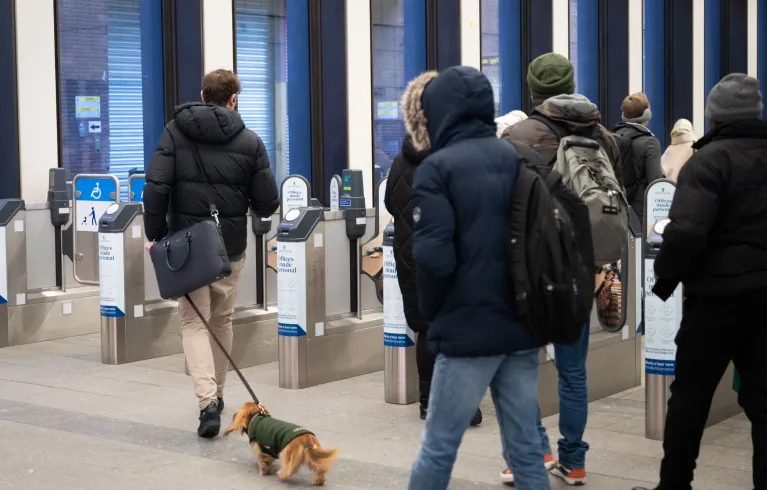
Key information
Publication type: Current investigation
Publication status: Adopted
Publication date:
Print this page
Contents
5 sections
Introduction
The London Assembly Transport Committee is holding a one-off meeting on fare evasion.
Investigation aims and objectives (Terms of Reference)
To examine what TfL is doing to tackle fare evasion and the impact it has on TfL staff.
Key issues
- In April 2025 TfL stated that its “most recent estimate of fare evasion across all our public transport modes for 2023/24 was 3.9 per cent, which equates to a revenue loss of more than £130m.” In this report TfL also stated that fare evasion and payment disputes are the root cause of approximately 50 per cent of incidents of violence and aggression towards TfL staff.
- TfL has set a target to reduce fare evasion to below 1.5 per cent by 2030. In April 2025 TfL published a new fare evasion strategy Revenue protection summary which set out key measures to reduce fare evasion including enhanced monitoring and quicker response to trends, expanded data collection and analysis and tailored interventions for each transport mode.
- In February 2024 TfL increased the penalty fare from £80 to £100 and made body worn video part of its essential kit for frontline customer facing staff.
- TfL’s Revenue protection summary sets out different categories of fare evaders as follows, accidental; opportunistic; calculated and chronic. In 2023 TfL prosecuted 19,614 people for fare evasion, an increase of 56 per cent on 2022. TfL states that some of its lost revenue is recovered through revenue enforcement activity “amounting to £7.2m in 2022-23 in penalty fare and prosecution income” and that penalty fare income is used to help offset the costs of enforcement but “does not come close to covering these in full.”
Key questions
- How will the new actions TfL has set out in its Revenue protection summary help to reduce fare evasion to below 1.5 per cent by 2030?
- How is TfL targeting specific transport modes and stations where fare evasion is a particular issue and how is it targeting different types of fare evader?
- What is TfL doing to support its frontline staff faced with violence and aggression as a result of fare evasion and payment disputes?
- How is fare evasion addressed in other cities, and by other transport providers?
- Does TfL’s Revenue protection summary set out the right approach to tackling fare evasion?
Related documents
Back to table of contents